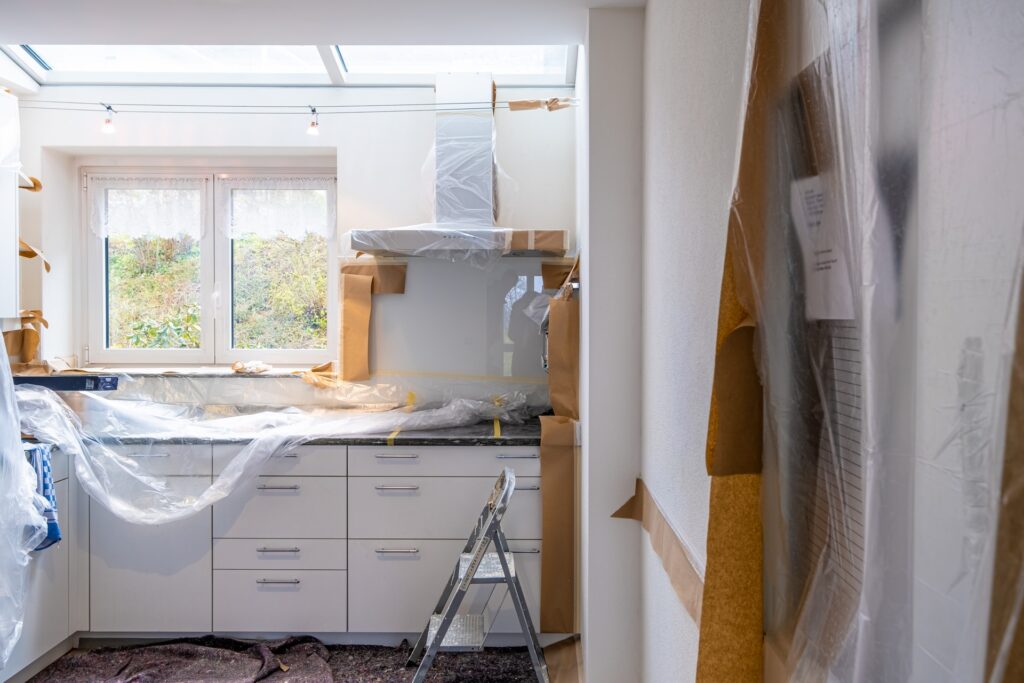There are essential steps you must take before undergoing the complex process of a kitchen renovation. From moving your appliances around to emptying storage spaces, a lot of preparations must be done to avoid damage to your belongings and to ensure a smooth and safe renovation.
In addition to choosing a competent team of designers and contractors, remember to complete the five steps we have listed down below to achieve the best possible result for your kitchen renovation. Read on so you know which elements you must not overlook.
Step 1: Empty the Kitchen
You must first prepare the physical space for the renovation that is about to take place: empty all the cabinetry, drawers, and other storage inside your kitchen. You can also carefully segregate and label the things you will be keeping, recycling, and throwing away.
If any items in this space are too heavy for you to handle on your own, you can ask your kitchen renovation contractor to move them for you. Lastly, it is best to clear any path that may be used for moving and transferring objects and equipment.
Step 2: Remove Hanging Objects in Adjoining Rooms
During demolition processes in the renovation, hanging objects on nearby walls can rattle and drop to the floor. This is why it’s important to take down any fragile photo frames, mirrors, and artwork pieces on the other side of the renovation site to keep valuable items from breaking.
Step 3: Designate a Temporary Kitchen Space
Many kitchen renovation contractors offer to help clients set up their temporary kitchen spaces. Heavy home appliances like refrigerators will be relocated to this new site.
There is no need for you to worry about this space as professionals know how to adequately protect your floors and carpets from too much weight and staining with suitable materials. Masonite and plywood can serve as platforms for large appliances, while cardboard can be placed underneath smaller kitchen equipment.
In addition, we recommend preparing disposable utensils and plates as well as pre-cooked meals while you are waiting for your brand new kitchen. Cooking and doing the dishes with a makeshift kitchen can be challenging, so the mentioned preparations can save you from the hassle.
Step 4: Prevent Other Rooms from Catching Debris
As kitchen renovation can produce a lot of dust and dirt, you can ask your contractor to close off the new kitchen space with plastic covers. This process is an effective way to stop construction debris from spreading throughout the rest of your property.
Step 5: Make Necessary Preparations for the Room Below
If your kitchen renovation involves drastic floorwork, it is best to consider the room below this space as well. Most old homes have unfinished ceilings, allowing dust and other construction debris to fall through the cracks.
Before beginning the renovation, make sure to protect this space below and cover any items that may be destroyed by the activity byproducts above. You can also ask your contractor to help you with this issue. They typically staple a plastic cover to the floor’s underside and the ceiling below.
Conclusion
Kitchen renovation is an excellent way to increase your home’s value and augment your household and guests’ comfort. To ensure the success of this process and your family’s safety, you must employ the expertise of professionals who can efficiently make the preparations we listed in this article.
If you need kitchen appliance repair and renovation, talk to High N Appliance Repair Services. Our company’s focus and specialty involve performing first-class on-site domestic appliance repair services. Schedule an appointment with us today!

